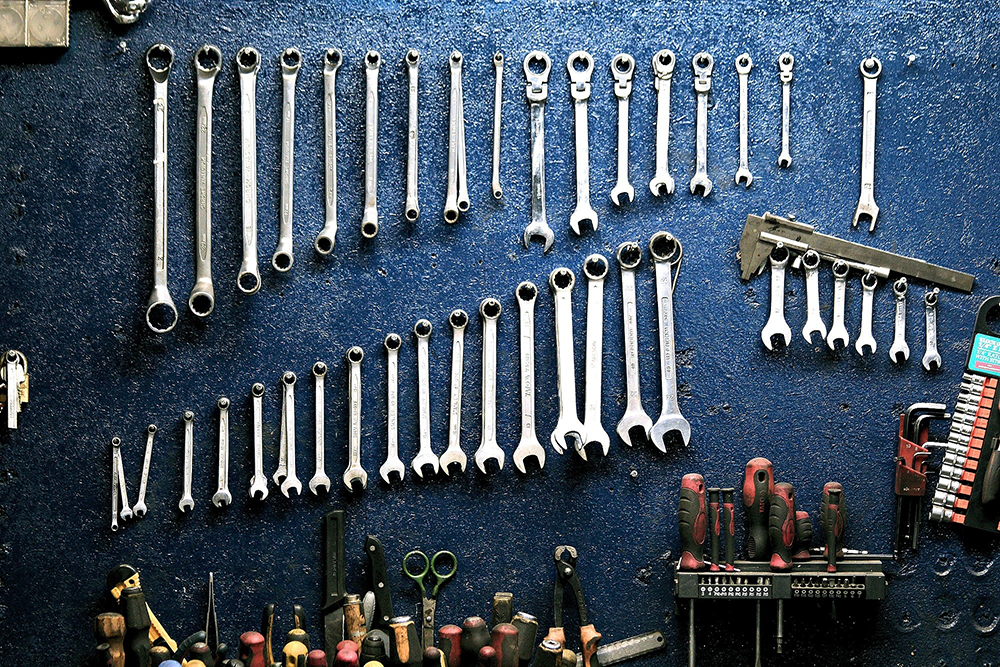
By Mike DuBose
After a home, cars are usually one of the most expensive possessions a person or family owns. Many people rely on them for important tasks like getting back and forth to work each day. Because automobiles represent such a significant expense and serve a vital role in daily life, caring for them (and repairing them when they malfunction) is very important.
In the past, motivated laypeople could teach themselves a lot about the mechanics of automobiles and perform some of their own repairs. As technology has advanced, however, car companies have incorporated computers and electronic elements into their products. This means that even those familiar with how cars work may need to rely on professionals for diagnosing and fixing some issues. Most mechanics are honest, reliable, and provide quality services, but (as with any profession) there are also individuals who are thieves and prey on their customers to make money!
Many individuals have horror stories about being overcharged or even downright scammed by shady auto repair garages and mechanics. The main problem is that, at most garages and car dealerships, mechanics are paid salary plus a commission based on the repairs they make and the parts they provide to the consumer. Labor is billed by the hour and makes up a large portion of customers’ bills. In some cases, this can drive unethical mechanics to work longer on automobiles than necessary to jack up costs, or to find new “problems” to increase their commission. For example, a customer may come in with brakes needing minor repairs, and a dishonest mechanic might indicate that major work is needed…at a significant expense!
How can you know that the mechanic you have chosen won’t scam you? Here are some tips:
Take time to do your research. It can be very stressful to deal with car problems, but don’t rush. Seek recommendations from friends, family, and colleagues (especially those who are knowledgeable about automobiles and/or have vehicles similar to yours) of garages, dealerships, or mechanics they trust, even before you need them. Then, conduct additional research about these places online, checking websites like Yelp and Google reviews to see if others have had similar experiences. If a shop generates positive comments across the board, it’s likely a good bet! Consumer Reports suggests using routine maintenance as a way to test out some of the contenders, recommending, “Before your car needs a big repair, you might want to try out some local shops with smaller repairs or maintenance items, such as oil and filter changes.” While specials and sales may be tempting, it’s best to take your car to the same garage consistently to build a rapport with the staff there.
If an issue appears severe—and likely, expensive—you may want to have it inspected by at least two different professionals. If they disagree on the issue or how to fix it, consider seeking even more opinions until there is a general consensus. After obtaining a diagnosis, research how long it should take to fix and the estimated cost (the Consumer Reports Car Repair Estimator tool, available at consumerreports.org/carrepair, can be very useful for this). If a shop tries to scare you into making a quick decision (for example, saying, “I wouldn’t drive this car out of here like this”), that’s a big red flag not to trust them.
Choose certified mechanics. When visiting a shop in person or researching online, look for certifications that indicate the mechanics have undergone regulated training. One of the best is ASE certification, which is regulated by the National Institute of Automotive Service Excellence. To obtain ASE certification, a mechanic must pass an exam and provide proof of two years’ experience in the specialization he or she has chosen (ASE offers 40 different specializations ranging from collision repair to automobiles to heavy trucks). Every five years, they must pass an exam to renew their ASE certifications.
You may also want to look for a facility with an AAA Approved Auto Repair (AAR) sign, even if you aren’t a member of AAA. That’s because the organization screens shops thoroughly before awarding them AAR status, so you know that there is a baseline of reliability and quality. Also, according to Erin Huffstetler of finance website TheBalance.com, “All participating shops must offer 12 month/12,000 mile warranties on all repairs, use ASE or manufacturer-certified technicians and pass an annual AAA inspection.”
Ask questions. Always ask for an estimate of costs in writing.If your mechanic tells you that a part needs to be replaced due to age or damage, ask to see the part and have him or her explain what is wrong. You should also inquire about the shop itself, using questions like these (based on Huffstetler’s recommendations):
- How many years have they been in business?
- Do they guarantee their work? What sort of warranties do they offer?
- Are their mechanics ASE certified?
- Can customers provide their own parts?
- What types of vehicles or work do they specialize in?
- Are estimates free? Are there certain types of inspections that you'll have to pay for?
- Do they offer loaner cars or a free shuttle while your car is in the shop?
- Do they guarantee their estimates?
- Do they have different labor rates for different times/days of the week or different types of work?
- What are their payment policies? Do they accept credit cards, which will provide you with some rights and refund potential if things go south? (Many offer purchase protection, which can be useful if there are problems down the road.)
Dodge the “upsell.” With advances in technology meaning that repairs and even oil changes need to be performed less frequently, some car repair technicians will try to “upsell” you on other services to make up the difference. If a mechanic says that they saw another problem with your car while working on the issue you came in for, they may just be tacking it on to increase profits (pressure to do this is common in the industry, according to “Joe,” a mechanic with 40 years of experience who was interviewed by the news program 20/20). Ask if the service really needs to be performed; then, if they insist, ask to them to walk you through the issue, showing you the problem in person. Offers to flush coolants, replace air filters, or top off fluids are notorious ways for shops to earn an extra—and not always necessary—buck, according to several experts. In fact, while flushing all the car’s fluids may seem logical, my experienced mechanic cautioned that flushing some equipment, such as the transmission, can actually be harmful!
Obtain an estimate of the time needed to perform the service. The most expensive aspect of auto repair is not usually the parts—it’s the time spent by the technicians. If the shop tells you it’ll take a week to perform a minor repair, they are likely trying to exaggerate labor costs and pad your bill. (In his interview, Joe called this “gravy work,” saying, “Most shops will charge you an hour and a half to two hours to turn the rotors and put pads on it. If you’re good and got good equipment, you can do it in 20 or 30 minutes...That’s gravy.”) Barring unexpected circumstances, the time frame should fall within whatever you found during your research. If not, run!
If you’re uncomfortable or unhappy with one garage, take your business elsewhere. If you see any warning signs or feel that something is “off” about a shop, contact another one and take your car there for a second opinion. You’ll have to pay for any work already done by the initial place, but you could save hundreds (or thousands!) by finding an honest mechanic. Even paying to have the vehicle towed to the alternate location will pay off in the long run. Some technicians even offer mobile services where they will come to you to diagnose issues.
Once you have found a reputable mechanic, forge a relationship. Auto repair technicians who are honest, knowledgeable, and able to perform high-quality work within a reasonable timeframe are worth their weight in gold! If you find a mechanic who meets these criteria, take your car to him or her for all future needs and refer friends and colleagues to their shop. If you build a strong business relationship, you’ll be able to relax knowing that a reliable person is caring for one of your most expensive possessions! Plus, if the garage does all the work on your car, they will know its history, and regular customers often obtain faster appointments and higher-quality care.
Learn more so you’re prepared in the future. One of the best defenses against being overcharged for car repairs is to learn more about your car. According to Consumer Reports, “It’s often as easy as checking the owners’ manual, which will give the precise schedule of what needs to be inspected or replaced, and when.” For additional knowledge, you can also take car maintenance and repair courses online or in person.
The bottom line: When it comes to car repairs, knowledge is power! The more informed you are about your vehicle and how it works, the better you will be able to judge whether a mechanic is telling you the truth about how to fix it. Once you have found an honest mechanic and garage, develop a strong partnership, which will save you stress and money in the future!
About the Authors: Our corporate and personal purpose is to “create opportunities to improve lives” by sharing our knowledge, research, experiences, successes, and mistakes. You can e-mail us at [email protected].
Mike DuBose received his graduate degree from the University of South Carolina and is the author of The Art of Building a Great Business. He has been in business since 1981 and is the owner of Research Associates, The Evaluation Group, Columbia Conference Center, and DuBose Fitness Center. Visit his nonprofit website www.mikedubose.com for a free copy of his book and additional business, travel, and personal articles, as well as health articles written with Dr. Surb Guram, MD.
Katie Beck serves as Director of Communications for the DuBose Family of Companies. She graduated from the USC School of Journalism and Honors College.
© Copyright 2018 by Mike DuBose—All Rights Reserved. You have permission and we encourage you to forward the full article to friends or colleagues and/or distribute it as part of personal or professional use, providing that the authors are credited. However, no part of this article may be altered or published in any other manner without the written consent of the authors. If you would like written approval to post this information on an appropriate website or to publish this information, please contact Katie Beck at [email protected] and briefly explain how the article will be used; we will respond promptly. Thank you for honoring our hard work!



